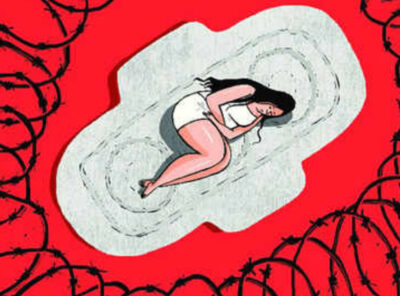By Divya Mohan; Kiran Anjali Project Program Manager

She also told me that my blood was impure and I was not allowed to enter the prayer room in our house or touch any items related to prayer ceremonies. This concept is deep rooted in our society at all socio-economic and educational levels. I believed what my mother told me and ensured that I did not participate in any prayers during my periods. My experience got worse at my grandmother’s house as I was told to sleep on a different mattress and was not allowed to enter the kitchen during my period or go to the temple. I was even restricted from touching my grandmother’s tulsi (holy basil) plant. I believed the older women in my family and followed their instructions until I joined junior college and understood that just because the blood comes out from the vagina it does not mean that is impure. This is also when I fully understood the cultural meaning associated with the phrase “badi ho gayi.”
The subject of menstruation is taboo in Indian society. It is never talked about publicly, and many myths and fears are perpetuated. This is not helpful to girls and women, who deserve to be knowledgeable about their bodies. Workshops could be given in school to better prepare young women. Everyone should understand that menstruation is a normal and essential process for all women and is not a subject that we should feel ashamed to talk about.
I never forgot this experience or the unsettling feelings I had every month during my period. As I got older and my field of interest was in social work and women’s issues, I piloted a program that consisted of a series of workshops educating young women in both government and private schools. It was important to me that young women were aware of what their bodies go through so that they did not feel the unsettling feelings I felt. I also wanted to educate the other young women on the tools available to manage periods with dignity
As program manager for the Kiran Anjali Project, I am proud to work with partners that understand the stigma and shame associated with periods in the Indian culture. The young women at our partner projects are growing up with knowledge and confidence in their bodies.


